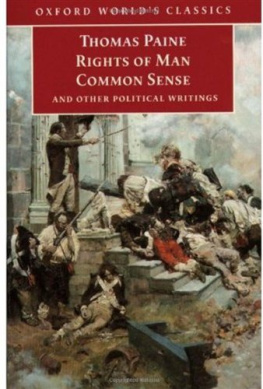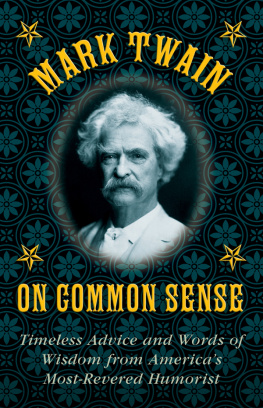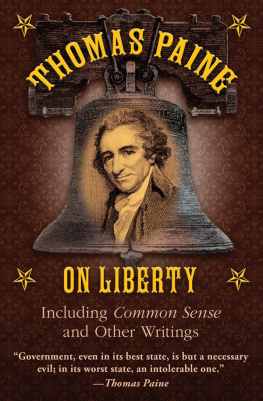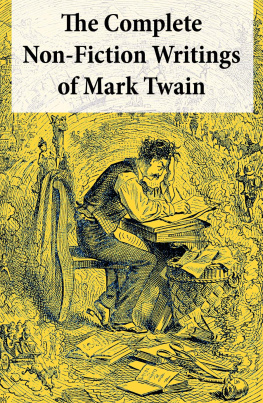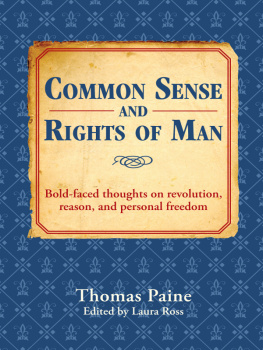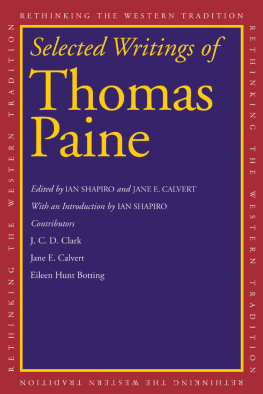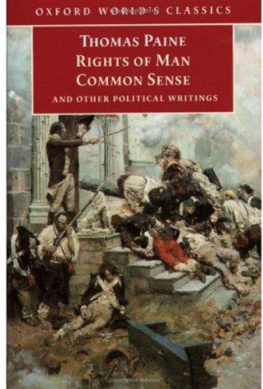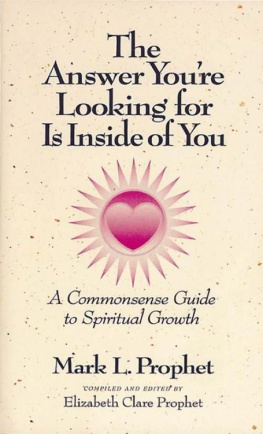Philp Mark - The Rights of Man, Common Sense and other political writings
Here you can read online Philp Mark - The Rights of Man, Common Sense and other political writings full text of the book (entire story) in english for free. Download pdf and epub, get meaning, cover and reviews about this ebook. City: Oxford, year: 1998;1995, publisher: Oxford Paperbacks;Oxford University Press, genre: Politics. Description of the work, (preface) as well as reviews are available. Best literature library LitArk.com created for fans of good reading and offers a wide selection of genres:
Romance novel
Science fiction
Adventure
Detective
Science
History
Home and family
Prose
Art
Politics
Computer
Non-fiction
Religion
Business
Children
Humor
Choose a favorite category and find really read worthwhile books. Enjoy immersion in the world of imagination, feel the emotions of the characters or learn something new for yourself, make an fascinating discovery.

- Book:The Rights of Man, Common Sense and other political writings
- Author:
- Publisher:Oxford Paperbacks;Oxford University Press
- Genre:
- Year:1998;1995
- City:Oxford
- Rating:5 / 5
- Favourites:Add to favourites
- Your mark:
- 100
- 1
- 2
- 3
- 4
- 5
The Rights of Man, Common Sense and other political writings: summary, description and annotation
We offer to read an annotation, description, summary or preface (depends on what the author of the book "The Rights of Man, Common Sense and other political writings" wrote himself). If you haven't found the necessary information about the book — write in the comments, we will try to find it.
Philp Mark: author's other books
Who wrote The Rights of Man, Common Sense and other political writings? Find out the surname, the name of the author of the book and a list of all author's works by series.
The Rights of Man, Common Sense and other political writings — read online for free the complete book (whole text) full work
Below is the text of the book, divided by pages. System saving the place of the last page read, allows you to conveniently read the book "The Rights of Man, Common Sense and other political writings" online for free, without having to search again every time where you left off. Put a bookmark, and you can go to the page where you finished reading at any time.
Font size:
Interval:
Bookmark:
OXFORD WORLDS CLASSICS
RIGHTS OF MAN, COMMON SENSE
AND OTHER POLITICAL WRITINGS
TOM PAINE was born in Norfolk in 1737. After rudimentary schooling he was apprenticed to his father, a staymaker, and later also tried his hand variously as a teacher, exciseman, and tobacconist. At the age of 37, in 1774, his various enterprises having failed, he emigrated to America. He quickly sided with the colonists in their controversy with Britain and in 1776 wrote two of the most powerful pamphlets of the Revolution, Common Sense and The American Crisis. After the Revolution, in 1787, he returned to Europe and was caught up in the opening stages of the French Revolution. His Rights of Man (17912), written as a defence of France against Edmund Burkes Reflections on the Revolution in France (1790), was the most widely read pamphlet of the decade. Its success, coupled with the rise of a popular movement for political reform in Britain and Paines unrepentant Letter Addressed to the Addressers (1792) resulted in his being outlawed. A year later, as a deputy to the National Convention in France, he fell foul of the Jacobins and was imprisoned. He was released at the end of 1794 and went on to write Dissertation on the First Principles of Government (1795) and Agrarian Justice (1796), which develop still further his earlier arguments for an egalitarian yet liberal democratic order. Paine returned to America in 1802, to be vilified as an atheist by the Federation party (primarily because of his Age of Reason (1794), an attack on Christianity). He died in obscurity in 1809.
MARK PHILP is a Fellow and Tutor in Politics at Oriel College, Oxford. He is the author of Paine (1989) in the Oxford Past Masters Series, and Godwins Political Justice (1986). He is the general editor of the Collected Novels and Memoirs of William Godwin (1992) and the Political and Philosophical Writings of William Godwin (1993). He has written widely on late eighteenth-century political ideas and movements and is the editor of The French Revolution and British Popular Politics (1991).
OXFORD WORLDS CLASSICS
For over 100 years Oxford Worlds Classics have brought readers closer to the worlds great literature. Now with over 700 titlesfrom the 4,000-year-old myths of Mesopotamia to the twentieth centurys greatest novelsthe series makes available lesser-known as well as celebrated writing.
The pocket-sized hardbacks of the early years contained introductions by Virginia Woolf, T. S. Eliot, Graham Greene, and other literary figures which enriched the experience of reading. Today the series is recognized for its fine scholarship and reliability in texts that span world literature, drama and poetry, religion, philosophy and politics. Each edition includes perceptive commentary and essential background information to meet the changing needs of readers.
Refer to the to navigate through the material in this Oxford Worlds Classics ebook. Use the asterisks (*) throughout the text to access the hyperlinked Explanatory Notes.
OXFORD WORLDS CLASSICS

THOMAS PAINE

Edited with an Introduction and Notes by
MARK PHILP


Great Clarendon Street, Oxford OX2 6DP
Oxford University Press is a department of the University of Oxford.
It furthers the Universitys objective of excellence in research, scholarship,
and education by publishing worldwide in
Oxford New York
Athens Auckland Bangkok Bogot Buenos Aires Calcutta
Cape Town Chennai Dar es Salaam Delhi Florence Hong Kong Istanbul
Karachi Kuala Lumpur Madrid Melbourne Mexico City Mumbai
Nairobi Paris So Paulo Singapore Taipei Tokyo Toronto Warsaw
with associated companies in Berlin Ibadan
Oxford is a registered trade mark of Oxford University Press
in the UK and in certain other countries
Published in the United States by
Oxford University Press Inc., New York
Editorial matter Mark Philp 1995
The moral rights of the author have been asserted
Database right Oxford University Press (maker)
First published as a Worlds Classics paperback 1995
Reissued as an Oxford Worlds Classics paperback 1998
All rights reserved. No part of this publication may be reproduced, stored in a retrieval system, or transmitted, in any form or by any means, without the prior permission in writing of Oxford University Press, or as expressly permitted by law, or under terms agreed with the appropriate reprographics rights organizations. Enquiries concerning reproduction outside the scope of the above should be sent to the Rights Department, Oxford University Press, at the address above
You must not circulate this book in any other binding or cover
and you must impose this same condition on any acquirer
British Library Cataloguing in Publication Data
Data available
Library of Congress Cataloging in Publication Data
Paine, Thomas, 17371809.
[Works. 1995]
Rights of man; Common sense; and other writings / Thomas Paine;
edited with an introduction by Mark Philp.
p. cm.(Oxford worlds classics)
Includes bibliographical references and index.
1. Political scienceEarly works to 1800. I. Philp, Mark.
II. Title. III. Series.
JC177.A3 1995 320dc20 947288
ISBN 0192835572
5 7 9 10 8 6 4
Printed in Great Britain by
Cox & Wyman Ltd.
Reading, Berkshire
MY thanks are owed to those who have helped me chase some of Paines more obscure references, especially Nigel Biggar, Selina Chen, David Eastwood, Martin Fitzpatrick, Simon Hornblower, Colin Lucas, Paul Langford, Leslie Mitchell, Sarah Turvey, and David Wootton.
This collection is for my children, Joe, Ruth, and Hannah. Their various contributions gave added resonance to Paines insistence that every age and generation must be free to act for itself, in all cases, as the ages and generations which preceded it. Given their ages, their sovereignty is still a long way off, although we already disagree about exactly how far. But when it comes, they could do a lot worse than to have Paines work to hand.
BETWEEN 1775 and 1815, from the beginning of the American Revolution to the end of the French, the meaning of the term revolution changed dramatically. In the mid-eighteenth century, revolution involved a change in government, and in a more specialized sense, a return to the basic principles of the constitution: it had no connotations of progressive and permanent change. By the beginning of the nineteenth century, in the lexicon of reformers and radicals the term had come to mean a process of rapid, fundamental, and progressive social and political change. Reform efforts were no longer directed by a backward-looking concern with an original constitution or uncorrupted state; instead, they became linked to a belief in the advancement of mankind from barbarism to civilization, based on the spread of enlightenment and the recognition of the inalienable rights of man.
Next pageFont size:
Interval:
Bookmark:
Similar books «The Rights of Man, Common Sense and other political writings»
Look at similar books to The Rights of Man, Common Sense and other political writings. We have selected literature similar in name and meaning in the hope of providing readers with more options to find new, interesting, not yet read works.
Discussion, reviews of the book The Rights of Man, Common Sense and other political writings and just readers' own opinions. Leave your comments, write what you think about the work, its meaning or the main characters. Specify what exactly you liked and what you didn't like, and why you think so.

